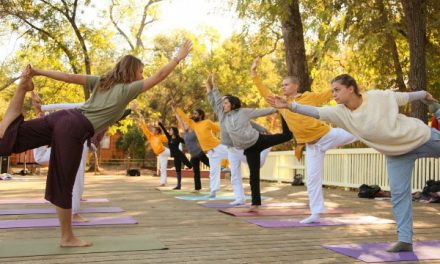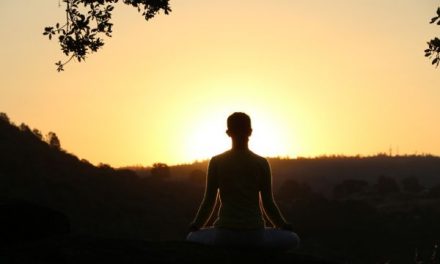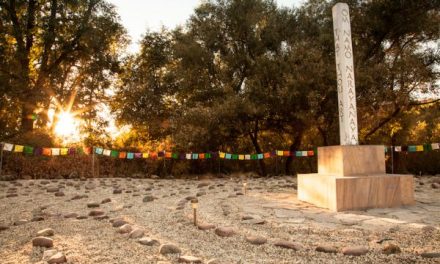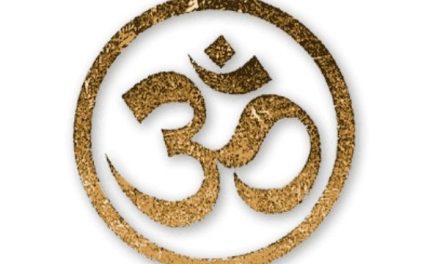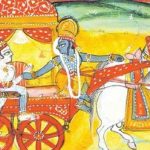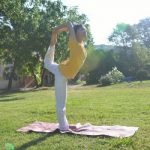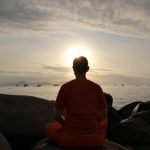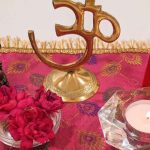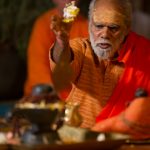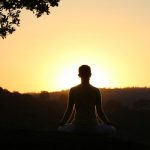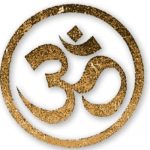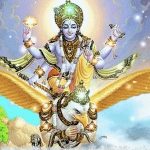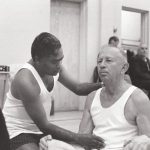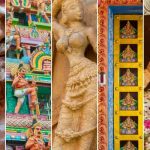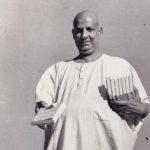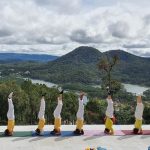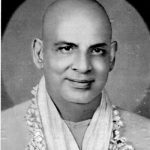 The Sage’s View
The Sage’s View
by Swami Sivananda
The man who stands up to his neck in cold water has a twofold experience. His head is exposed to the sun, his body to the cold water. He experiences both heat and cold. Such is the experience of a liberated sage. He has double consciousness. He enjoys the bliss of Brahman, but also has the experience of this world. He is like a man who knows two languages.
Just as the pot in which asafoetida or onion is kept emits a certain amount of smell even when it is cleaned several times, so also, a small trace of ignorance still remains in the mind of a sage. The jivanmukta (liberated sage) has a consciousness of the body in the form of an impression in the subconscious mind. That is the reason why he eats and drinks. Though the instinctive mind with low desires is destroyed, the pure mind does not perish in the liberated sage.
How will he be able to engage himself in worldly activity without an instrument, namely, the mind? The phenomenal universe does not vanish from the vision of the liberated sage. He sees the world as a dream within himself. Just as the mirage appears even after the illusory nature of the water is understood, so also, the world appears for a jivanmukta even after he has attained Self-realisation, even after he has clearly understood the illusory nature of the world.
But, just as the man who has understood the nature of the mirage will not run after the mirage for drinking water, so also, the sage who is liberated will not pursue sensual objects like the worldly-minded people—though the world appears to him. That is the difference between a worldly man and a liberated sage. The jivanmukta beholds the one reality or God everywhere and in all things. For him there is no distinction between a rogue and a saint, gold and stone, honour and dishonour.
He actually feels that all is himself only—that snakes, scorpions, tigers, bears and lions are as much part of himself as his own eyes, nose, ears, hands and feet. He is one with the flower, sun, ether, ocean, mountain and sky. He has cosmic vision and cosmic feelings. The state of a jivanmukta is the be-all and end-all of existence. There is fullness in this state. All desires are burnt. It is a state of absolute and perfect satisfaction. There is no gain greater than this; no bliss greater than this; no wisdom greater than this. There, at the summit of the hill of eternal bliss, you can see the sage or jivanmukta or a full-blown yogi.
He has climbed the stupendous heights through intense and constant struggle. He did severe, rigorous spiritual practices. He did profound meditation. He spent sleepless nights. He kept long vigils during several halting stages. He persevered with patience and diligence. He surmounted many obstacles, conquered despair, gloom and depression. He is a beacon-light to the world now. Remember that he was also rotting in those days in the quagmire of births and deaths, like yourself. You can also ascend to that summit if only you will.

